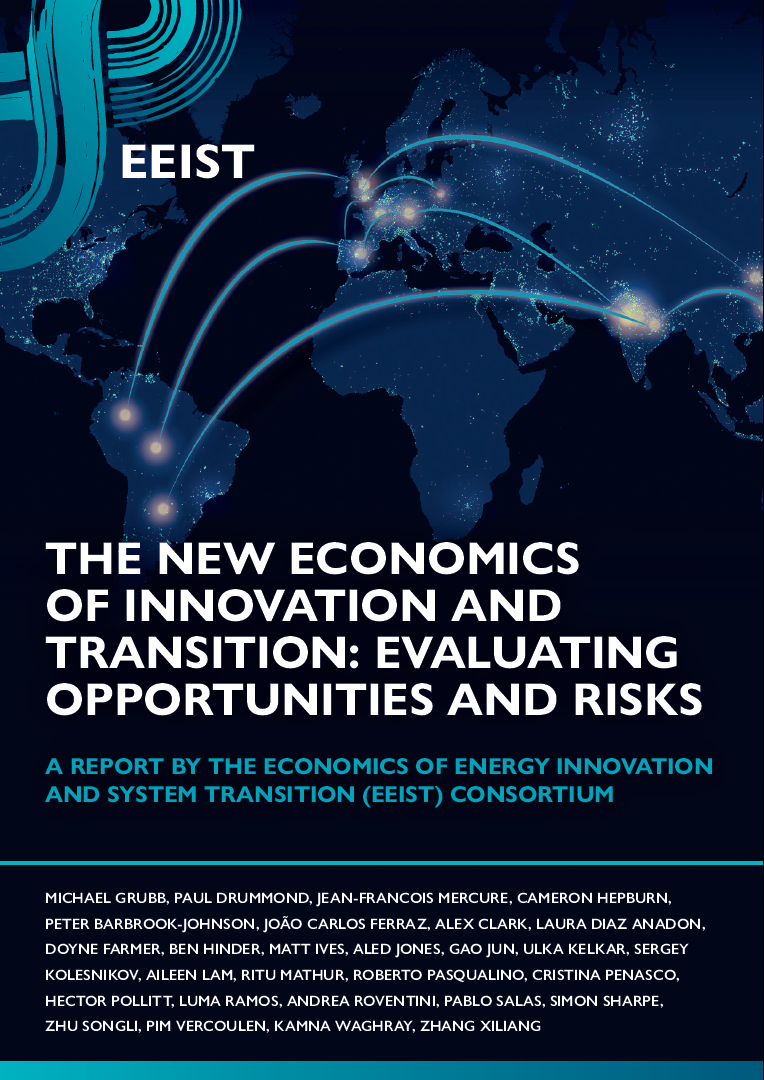Submitted by Sergey Kolesnikov on Tue, 02/11/2021 - 16:22

The Economics of Energy Innovation and System Transition (EEIST) project has launched its flagship report 'The New Economics of Innovation and Transition: Evaluating Opportunities and Risks' at COP26 today.
The report finds that policy support and government-led investment in clean technologies shapes the growth of markets, unlocks private sector investment, and can rapidly drive down costs. It highlights that some of the greatest successes in the clean energy transition so far, such as dramatic cost reductions in wind and solar power and LED lighting, have come from policies to shape markets that were not generally those recommended by conventional economic analysis. To replicate these successes, the report calls on policy makers to learn the lessons and think differently about the dynamics of change in our economies.
The key messages of the report are:
- Government action to shape markets for clean energy technologies is key to drive the rapid change necessary to meet the goals of the Paris Agreement and boost green economies.
- Targeted policy support and investment in new technologies can shape the growth of markets and unlock the private sector investment necessary to rapidly drive down costs, support new supply chains, business models, markets and jobs.
- Dramatic cost reductions and market growth in wind and solar power and LED lighting were driven by a strategic mix of policies – governments should adopt the same approach to accelerate new low-carbon industries.
- Some of the greatest successes in the clean energy transition so far have come from policies that were not generally those recommended by conventional economic analysis – policymakers must learn lessons from the past to support better policy decisions.
- Government leaders and policy makers should consider a new economic framework to guide decisions where the aim is transformational change: considering not just costs and benefits, but opportunities and risks.
- International collaboration can create faster innovations, larger economies of scale, and stronger incentives for investment, to accelerate progress towards tipping points where clean solutions become the most affordable, accessible and attractive options worldwide.
Read the full report here: https://eeist.co.uk/downloads
The report is also featured in The Guardian: read World leaders announce plan to make green tech cheaper than alternatives.
The EEIST project (https://eeist.co.uk/) brings together leading experts in complexity economics and systems thinking from the UK, EU, Brazil, China, and India to inform decarbonisation policy decision making. It is funded by the U.K. Department for Business, Energy and Industrial Strategy and the Children’s Investment Fund Foundation.
C-EENRG is one of the members of the EEIST project consortium, with C-EENRG Fellows Jean-Francois Mercure, Laura Diaz Anadon, Sergey Kolesnikov, Aileen Lam, Cristina Peñasco, Pablo Salas and Hector Pollitt contributing to the report.

